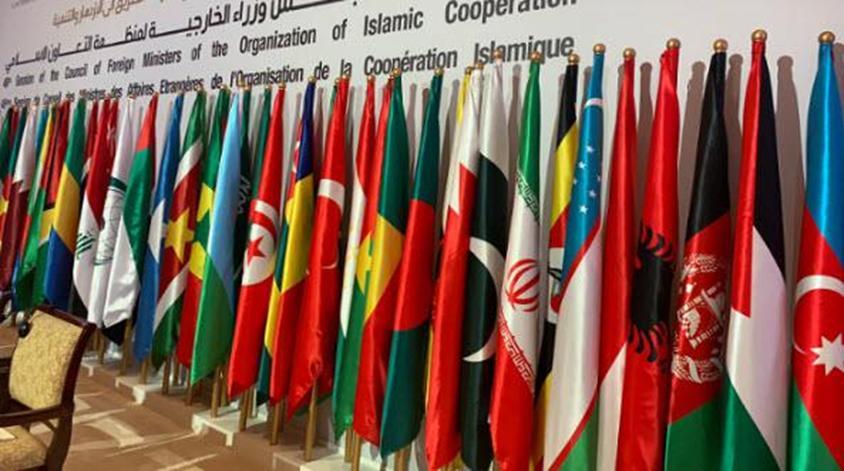Africa-Press – Ethiopia. In June 2025, the Organization of Islamic Cooperation (OIC) declared the Hijri year 1447 as the Year of Commemoration of the 1500th Anniversary of the Birth of Prophet Muhammad (PBUH). The resolution 15/51-C entitled “The Commemoration of the 1500th Anniversary of the Birth of Prophet Muhammad (PBUH)” highlights the Prophet as a “Prophet of Mercy,” whose life embodied compassion, justice, and human dignity. Beyond symbolism, the commemoration is an opportunity to translate those values into practical dialogue across diverse societies—including those where Muslims are a small minority.
One such case is Zimbabwe. With Muslims representing less than one percent of the population, Zimbabwe may not appear a natural priority for the OIC’s commemorative agenda. Yet it offers an important example of how Islam’s universal message can contribute to democratic culture, social tolerance, and Africa’s philosophy of Ubuntu.
The OIC’s resolution envisions educational, cultural, and humanitarian activities to mark the Prophet’s anniversary. For global audiences, such efforts should avoid being inward-looking, limited to Muslim-majority societies. Rather, they should emphasize values that transcend religious identity: justice, compassion, service, and peaceful coexistence.
In Africa, and particularly in Zimbabwe, this universal framing matters. Zimbabwe is a pluralistic society where Christianity, traditional religions, and minority faiths peacefully coexist. It is also a society continually navigating the challenges of democratic life and social cohesion through dialogue, tolerance and mutual understanding. Zimbabwe’s own traditions provide a natural foundation for this dialogue. The African philosophy of Ubuntu—summed up in the phrase “I am because we are”—emphasizes interconnectedness, dignity, and shared responsibility. These values resonate strongly with prophetic teachings on mercy, justice, and care for the vulnerable.
By framing the commemoration in terms of democracy, tolerance and Ubuntu, the Prophet’s legacy becomes not a religious celebration but a civic exercise—reinforcing Zimbabwe’s democratic aspirations while deepening traditions of tolerance and shared humanity.
In relation to democratic values, linking commemoration with civic participation and community service, will provide the Muslims in Zimbabwe with the opportunity to contribute to the country’s democratic culture. Initiatives such as scholarships, health campaigns, or food relief reflect the Prophet’s ethic of responsibility while aligning with democratic ideals of inclusion and accountability. Interfaith dialogue is essential in Zimbabwe’s context.
In the spirit of tolerance, enhanced partnerships among Muslim representatives, Christian churches, and traditional cultural leaders serve to affirm their collective dedication to compassion, mutual respect, and the promotion of peaceful coexistence within society.
Educational and cultural initiatives can explore the convergences between Ubuntu and Islamic thought. Public lectures, exhibitions, or artistic collaborations could show that prophetic teachings of solidarity and mercy are not foreign but deeply compatible with Africa’s moral heritage.
Why Zimbabwe matters?
Zimbabwe’s significance goes beyond its borders. As a member of the African Union and the Southern African Development Community (SADC), it plays a significant role in shaping continental narratives about governance, culture, and cooperation. If the OIC can successfully implement commemorative initiatives in a country where Muslims form a small minority, it demonstrates the universal appeal of the Prophet’s message and Islam’s adaptability to diverse cultural contexts.
In a time when global discourse is often polarized along religious and cultural lines, Zimbabwe offers a chance to tell a different story: one where Islam’s values are presented not as competing with local traditions, but as complementing Africa’s own philosophy of humanity and solidarity.
Ultimately, the Prophet’s 1500th anniversary is not only about looking backward to history, but it is also about using his legacy to build bridges today. In Zimbabwe, that means creating spaces for dialogue, practicing service to the community, and affirming values that all citizens can share—justice, mercy, and dignity.
If the OIC and its members can seize this opportunity, the commemoration will not be confined to Muslim-majority societies. It will become part of a global conversation about how faith can strengthen democracy, foster tolerance, and enrich our shared humanity.
That would be a fitting tribute to a Prophet remembered as a mercy to all creation.
For More News And Analysis About Ethiopia Follow Africa-Press






